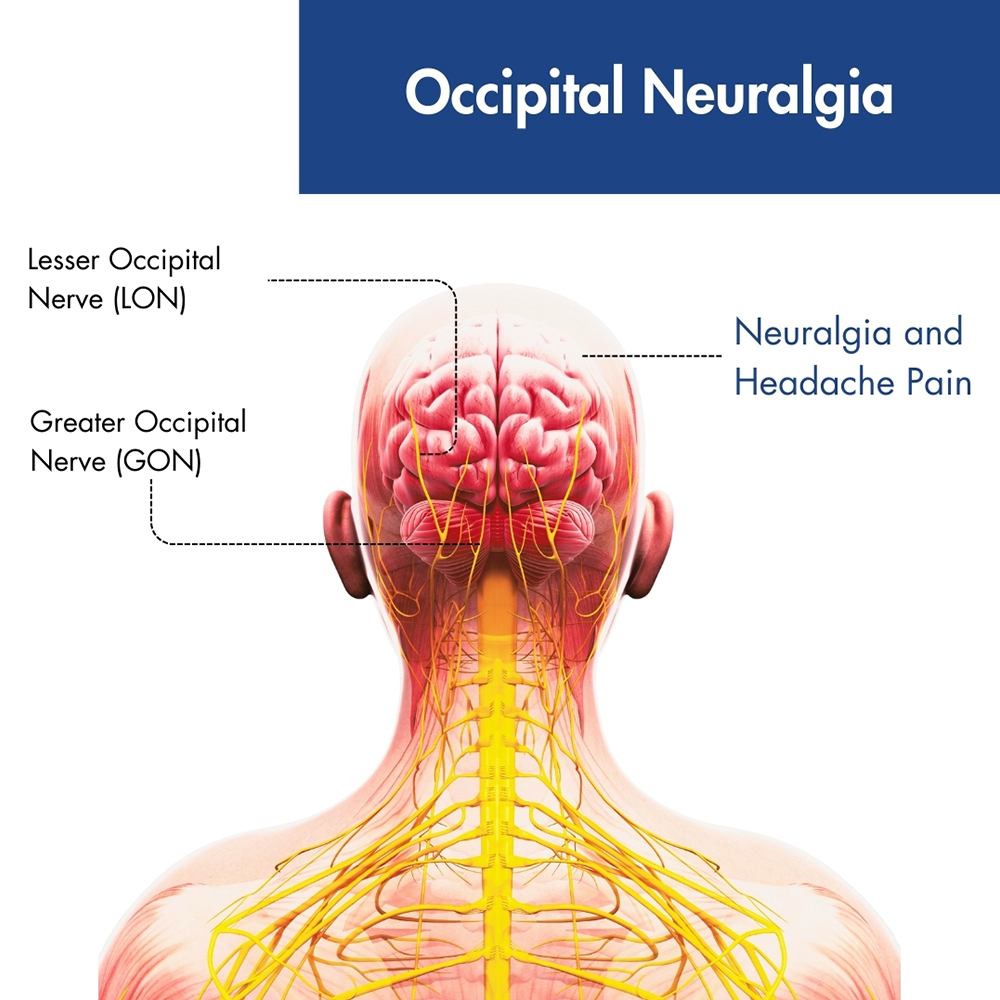We’re pleased to announce that Pain Physicians of Wisconsin is now Pro Spine Pain.
We’re pleased to announce that Pain Physicians of Wisconsin is now Pro Spine Pain.
 Occipital neuralgia is also known as occipital neuritis or occipital neuropathy. Because of the nature of this condition, it is often mistaken for other types of headaches or migraines. The pain associated with occipital neuralgia stems from inflammation of the third, greater, and lesser occipital nerves, or a combination of them. The pain is often sudden and intense, lasting from seconds to minutes, and may present as sharp or shooting sensations. It is typically concentrated in the upper neck and the back of the head, sometimes extending towards the forehead.
Occipital neuralgia is also known as occipital neuritis or occipital neuropathy. Because of the nature of this condition, it is often mistaken for other types of headaches or migraines. The pain associated with occipital neuralgia stems from inflammation of the third, greater, and lesser occipital nerves, or a combination of them. The pain is often sudden and intense, lasting from seconds to minutes, and may present as sharp or shooting sensations. It is typically concentrated in the upper neck and the back of the head, sometimes extending towards the forehead.
The occipital nerves are located at the back of the head, stemming from the upper cervical spine (neck) and branching out towards the scalp. They are primarily responsible for providing sensory information to the skin and muscles of the scalp, as well as certain regions of the back of the head. These nerves play a role in various functions, including sensation, motor control, and autonomic functions. Occipital neuralgia can result from pinched nerves or when they otherwise become inflamed or irritated, characterized by severe pain in the back of the head and neck.
It’s crucial to seek an accurate diagnosis of this condition, as the treatment approach may vary significantly from that of other types of headaches or migraines. The expert Wisconsin pain doctors at Pro Spine & Pain can ensure that appropriate treatment strategies are prepared to effectively manage your occipital neuralgia symptoms and improve your overall quality of life. Contact one of our five pain clinics today at Kenosha, Waukesha, Layton, Franklin, or Madison.
Occipital neuralgia can develop without warning and have a significant impact on daily life.
It can stem from various causes, such as:
Occipital neuralgia patients often endure intense pain resembling sharp or electric sensations in the back of the head or neck. The irritation of the occipital nerves that causes this discomfort is triggered by factors like injury, inflammation, or some other, unknown, causes. Even light contact with the scalp can provoke this pain, while tense muscles may exacerbate nerve irritation. Frequently, the pressure on the occipital nerves arises without a discernible cause, complicating diagnosis and treatment.
The pain experienced with occipital neuralgia can be severe and debilitating. Here are some common symptoms associated with this condition:
It is important to note that these symptoms may vary from person to person, and not everyone with occipital neuralgia will experience all of them. If you suspect you have occipital neuralgia or are experiencing any of these symptoms, it is crucial to consult a healthcare professional for a thorough neurological exam in order to get an accurate diagnosis and appropriate treatment options.
Common treatment options for occipital neuralgia include medication-based remedies and physical therapy. Medications like over-the-counter pain relievers, anti-inflammatory drugs, prescription analgesics, anticonvulsants, and occipital nerve blocks are often utilized to reduce pain and inflammation associated with nerve irritation. Physical therapy can also play a crucial role in improving muscle strength and flexibility, alleviating tension, and enhancing overall neck and head function. These treatments aim to provide relief and enhance the quality of life for individuals experiencing this condition.
In certain cases where conservative approaches are ineffective, more invasive remedies may be considered to achieve pain relief. Surgical treatments include occipital release surgery, involving decompression of the greater occipital nerves and spinal cord stimulation or occipital nerve stimulation, which have proven to be effective procedures for treating neuralgia disorders.
While a diagnosis of occipital neuralgia is not life-threatening, it can still lead to substantial discomfort. Reach out to Pro Spine & Pain today to schedule a consultation with a pain management specialist. Our team will swiftly diagnose the source of your problem and present a variety of treatment options tailored to alleviate symptoms of occipital neuralgia or any other painful issues you may be experiencing.

Thomas Stauss, MD, completed both his undergraduate and medical studies at the esteemed University of Wisconsin in Madison. Dr. Stauss values having access to a wide array of cutting-edge treatment options, ensuring effective relief for his patients' discomfort and a significant enhancement in their quality of life. More specifically, he specializes in utilizing implanted devices to manage chronic pain. Dr. Stauss’s primary objective is to uphold the dignity of each patient while delivering ethical and professional services.
More about Dr. Stauss